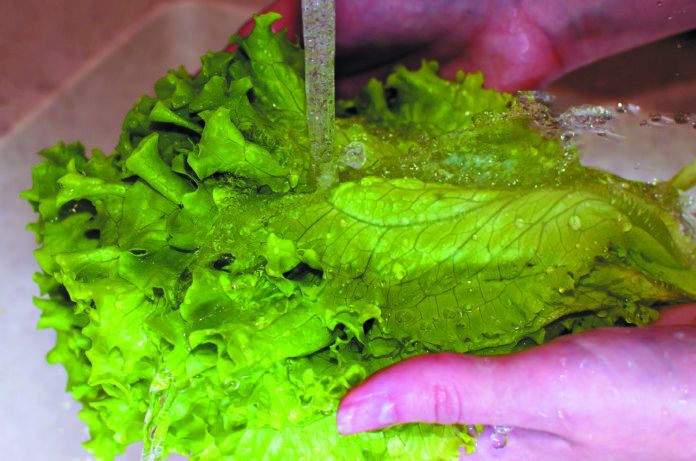A. Judith C. Thalheimer, RD, LDN, managing editor of Tufts Health & Nutrition Letter, answers: “Although raw produce is responsible for a large percentage of foodborne illness (food poisoning) in the U.S., millions of servings of leafy greens are eaten every day without incident.
“Greens can come in contact with germs like E. coli in the field, in packing and processing facilities, during shipping, from unwashed hands during food prep, or from contaminated counters, sinks, cutting boards, dishes, or utensils. Washing does not always remove all of the germs, but it is by far the best defense we have. The commercial washing process does at least as good a job as home washing, which is why the Centers for Disease Control and Prevention (CDC) says pre-washed leafy greens in packages that say “ready-to-eat,” “triple washed,” or “no washing necessary” do not need to be washed again.
For all other greens, washing is important. Remove any torn or bruised leaves and the outer leaves of cabbages and lettuce heads and rinse the remaining greens under running water, rubbing them gently to help get rid of dirt and germs. Soaking is not recommended, as this may allow germs from one leaf to spread to the other leaves. The CDC does not recommend using produce wash, soap, or any other chemicals on foods.
Keep in mind that choices like lettuce, spinach, collard greens, cabbage, kale, and bok choy provide nutrients that may help protect you from heart disease, stroke, and some cancers.”
David Kaplan, PhD, is the Stern Family Endowed Professor of Engineering at Tufts University, a Distinguished University Professor, and professor and chair of the Department of Biomedical Engineering. His research focus includes cellular agriculture. See his explanation of cultivated meat on this page.
























